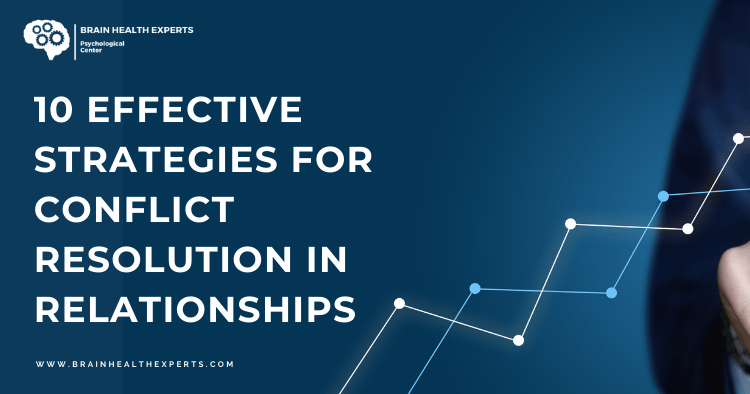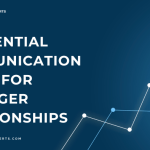Table of Contents
- Understanding Conflict in Relationships
- Effective Communication
- Active Listening
- Timing Matters
- Identify the Root Cause
- Stay Calm Under Pressure
- Use “I” Statements
- Seek Compromise
- Know When to Walk Away
- Consider Professional Help
Conflict is a natural part of any relationship. Whether it’s a disagreement with your partner, family member, or friend, knowing how to handle disputes is crucial for maintaining healthy connections. In this article, we’ll explore ten effective strategies for conflict resolution in relationships that can help you navigate tough situations with ease.
Understanding Conflict in Relationships
Conflict arises when two or more individuals have differing views, needs, or desires. In relationships, this can manifest as arguments, misunderstandings, and emotional distress. It’s important to recognize that conflict is not inherently bad; it can serve as an opportunity for growth and deeper understanding. However, how we handle these disagreements can make all the difference.
FAQs:
- Why do conflicts happen in relationships?
Conflicts can occur due to differences in values, communication styles, or unmet needs. Understanding these differences can pave the way for better resolution.- Are conflicts normal in healthy relationships?
Yes, conflicts are a normal part of any healthy relationship. It’s how you manage and resolve them that ultimately matters.
Effective Communication
Clear communication is the cornerstone of any successful relationship. When conflicts arise, ensure that you express your thoughts and feelings openly and honestly. Avoid blaming or attacking the other person, as this can escalate the situation. Instead, focus on describing your feelings and experiences.
Tip: Consider using communication techniques such as nonviolent communication (NVC) to express yourself without triggering defensiveness. For more on enhancing communication, check out 10 Essential Communication Skills for Stronger Relationships.
Active Listening
Active listening is crucial during conflict resolution. It involves fully concentrating on what the other person is saying, rather than just waiting for your turn to speak. This practice fosters empathy and understanding, making it easier to find common ground.
How to Practice Active Listening:
- Maintain eye contact
- Nod and use verbal affirmations like “I see” or “I understand”
- Paraphrase what the other person has said to confirm understanding
Timing Matters
Timing can significantly influence the outcome of a conflict. Discussing issues when emotions are high can lead to unnecessary escalation. Wait for a moment when both parties are calm and can approach the conversation with a clear mind.
Visual Element: Best Times to Discuss Conflicts
Best Times to Discuss Conflicts Conditions After a relaxing activity Both parties are relaxed During a scheduled time Avoids surprises When both parties are calm Reduces emotional charge
Identify the Root Cause
Often, the surface issue isn’t the actual problem. Take time to identify the root cause of the conflict. This requires introspection and honest communication. Engage with your partner to uncover what the real issue is, which might involve deeper feelings or unresolved past experiences.
Stay Calm Under Pressure
It’s easy to let emotions take over during a conflict. However, staying calm is essential for effective resolution. Practice deep-breathing techniques or take a short break if you feel overwhelmed. This can help you approach the situation with a clearer mindset.
Tips for Staying Calm:
- Count to ten before responding
- Take a short walk to clear your mind
- Use relaxation techniques like mindfulness or meditation. For effective mindfulness practices, refer to 10 Mindfulness Techniques to Enhance Emotional Regulation.
Use “I” Statements
Using “I” statements can decrease defensiveness and promote understanding. Instead of saying “You never listen to me,” try “I feel unheard when I’m talking.” This small shift in language can create a more constructive dialogue and invite the other person to engage positively.
Seek Compromise
Conflicts often require both parties to make concessions. Be willing to meet halfway and find a solution that satisfies both individuals. This might involve brainstorming together on ways to resolve the issue while considering each other’s needs.
Compromise Tips:
- List out all possible solutions
- Discuss the pros and cons of each option
- Agree on a solution that works for both parties
Know When to Walk Away
Sometimes, walking away from a heated discussion is the best course of action. If you find that emotions are too high or the conversation is becoming unproductive, take a break. Agree to revisit the discussion later when both parties are more composed.
Consider Professional Help
If conflicts in your relationship seem insurmountable, seeking professional help may be beneficial. Relationship counselors can provide insights and tools that can facilitate healthier communication and conflict resolution strategies.
Helpful Resources:
- American Association for Marriage and Family Therapy – Offers resources and a therapist directory.
- Psychology Today – Find a therapist in your area.
FAQs:
- When should we consider couples therapy?
If you find yourselves stuck in the same arguments or if conflicts escalate frequently, therapy can provide the guidance needed to navigate these challenges.- Are there online resources for conflict resolution?
Yes, numerous websites offer articles, videos, and workshops focused on communication and conflict resolution.
By adopting these ten effective strategies for conflict resolution in relationships, you can foster healthier communication, deepen your connections, and navigate disagreements constructively. Remember, conflicts don’t have to spell doom for your relationship; rather, they can become a stepping stone to greater intimacy and understanding. Also, consider exploring 10 Ways Positive Thinking Transforms Your Daily Life to enhance your overall well-being and approach to conflict.





